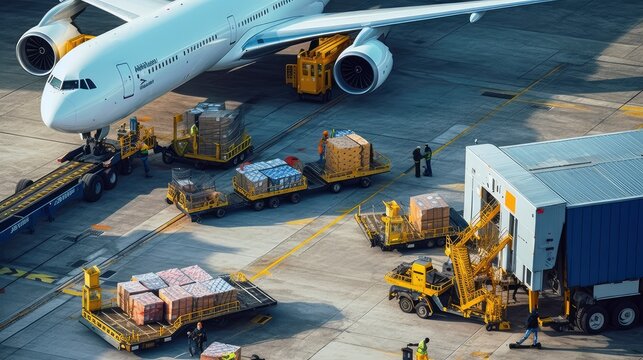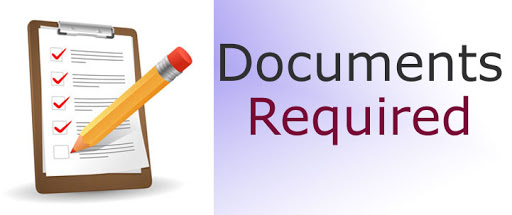- By TOP CHINA FREIGHT
- September 26, 2025
- Air Freight, Shipping
Table of Contents
Air freight China to Malaysia is one of the most reliable and fastest ways to transport goods between the two countries. Many businesses choose this method because of short transit times, secure handling, and flexibility for urgent cargo. However, understanding air freight rates, customs procedures, and documentation is essential to avoid costly mistakes. This guide explains everything you need to know, from costs to challenges, so you can optimize your logistics and reduce risks.

Why Choose Air Freight from China to Malaysia?
- Trade between China and Malaysia is frequent, driving strong shipping demand.
- Air freight is preferred when speed and reliability are more important than cost.
- Sea freight is cheaper but much slower.
- Air cargo ensures timely delivery for electronics, pharmaceuticals, spare parts, and perishable goods.
- Malaysia’s main airports (KUL, PEN) are well connected to Chinese hubs (Guangzhou, Shanghai, Shenzhen), ensuring efficient shipments.
How Long Does Air Freight from China to Malaysia Take?
Transit time depends on origin, destination, and customs clearance. Typically, direct flights take 1–2 days, while with handling, processing, and customs, the overall transit time is 3–7 days.
| Route (Origin → Destination) | Transit Time (Airport-to-Airport) | Total Door-to-Door Time |
|---|---|---|
| Guangzhou → Kuala Lumpur | 1–2 days | 3–5 days |
| Shanghai → Penang | 2–3 days | 4–6 days |
| Shenzhen → Johor Bahru | 2 days | 4–7 days |
| Beijing → Kuala Lumpur | 2–3 days | 5–7 days |
Delays may occur during peak seasons like Chinese New Year or major global trade events.
How Much Does Air Freight China to Malaysia Cost?

Air freight costs depend on several factors such as cargo weight, volume, airline, and urgency. Rates are calculated either by actual weight or volumetric weight, whichever is higher.
| Weight Category | Average Cost per Kg | Notes |
|---|---|---|
| 0–45 kg | $7–$9 per kg | Better to use courier services |
| 45–100 kg | $5–$7 per kg | Standard air freight option |
| 100–300 kg | $4–$6 per kg | More cost-effective |
| 300+ kg | $3–$5 per kg | Best for bulk shipments |
Tip:
Consolidating shipments with other exporters can reduce per-kg charges.
What Documents Are Required for Air Freight?

Accurate documentation ensures smooth customs clearance in both China and Malaysia.
| Document | Purpose |
|---|---|
| Commercial Invoice | Details value, description, and buyer/seller info |
| Packing List | Describes cargo contents, weight, and dimensions |
| Air Waybill (AWB) | Transport contract issued by airline |
| Import/Export Declaration | Legal requirement for customs |
| Certificates (if applicable) | For food, electronics, or dangerous goods |
Incomplete or incorrect paperwork can lead to delays, fines, or returned shipments.
Air Freight vs Sea Freight vs Courier: Which Is Better?
Choosing the right shipping mode depends on your cargo size, urgency, and budget.
| Method | Cost | Transit Time | Best For |
|---|---|---|---|
| Air Freight | Medium–High | 3–7 days | Urgent goods, high-value cargo |
| Sea Freight | Low | 14–25 days | Bulk shipments, cost-sensitive cargo |
| Courier Express | High per kg | 2–5 days | Small parcels, e-commerce orders |
Air freight balances speed and cost, making it a popular choice for businesses managing tight delivery schedules.
Key Challenges in Air Freight China to Malaysia
1. Capacity Shortages
During peak seasons, airlines face limited cargo space.
✅ Solution: Book early, consider alternative airports, or use consolidation services.
2. Customs Delays
Paperwork errors or restricted goods may cause clearance issues.
✅ Solution: Work with an experienced freight forwarder and prepare all documents accurately.
3. Higher Costs
Air freight is significantly more expensive than sea freight.
✅ Solution: Use bulk shipments and negotiate long-term contracts with carriers.
4. Sustainability Concerns
Air cargo contributes to higher carbon emissions.
✅ Solution: Opt for airlines with carbon offset programs or consider hybrid solutions like sea-air freight.
Case Study: Air Freight for Electronics

A Malaysian electronics importer needed urgent parts from Shenzhen to Kuala Lumpur. Sea freight would have taken 18 days, but the client chose air freight. The shipment of 200 kg cost $5.20 per kg and arrived within 4 days, saving production downtime. Although the cost was higher, the quick delivery ensured business continuity and avoided major losses.
How to Optimize Air Freight Costs from China to Malaysia
- Plan shipments ahead of time to secure better rates.
- Consolidate cargo to reduce per kg charges.
- Use efficient packaging to minimize volumetric weight.
- Compare different carriers for competitive pricing.
- Leverage freight forwarders for space booking and customs expertise.
Factors Affecting Air Freight China to Malaysia
Busy airports in China (Shanghai, Guangzhou) or Malaysia (Kuala Lumpur) can slow down cargo handling, affecting transit times.
Limited cargo flights or changes in flight frequency can impact delivery speed.
Rising fuel costs directly influence air freight charges.
Oversized or poorly packed cargo increases volumetric weight, raising costs.
Stricter inspection rules for electronics, pharmaceuticals, and lithium batteries may cause minor delays.
Emerging Trends in China-Malaysia Air Freight
E-commerce growth:
The boom in online shopping increases demand for fast, reliable shipping of small parcels.
Digital freight platforms:
Many businesses now use online booking and tracking tools for better visibility.
Sustainable logistics:
Airlines and forwarders are adopting carbon offset programs to meet environmental standards.
Consolidated cargo services:
Smaller shipments are combined to reduce per-kilogram costs and optimize airline space.
Tips for Faster Customs Clearance
- Pre-declare shipments electronically when possible to reduce processing time.
- Label and classify goods accurately according to HS codes.
- Work with experienced customs brokers familiar with Malaysian import regulations.
- Keep invoices, packing lists, and certificates ready for inspection.
- For perishable items, ensure cold chain documentation is complete.
Conclusion
Air freight China to Malaysia is the ideal choice for companies needing fast, reliable, and secure shipping. Although costs are higher than sea freight, the benefits of shorter transit times, better handling, and reduced risk make it worthwhile for many industries. By preparing accurate documents, booking space early, and working with experienced freight partners, you can optimize costs and ensure hassle-free delivery.
Need a Shipping Quote?
If you want expert guidance and peace of mind, our team is ready to assist.
TJ China Freight offers tailored solutions to help businesses of all sizes ship more reliably from China.

FAQ
Q1:How long does air freight from China to Malaysia take?
Usually between 3–7 days, depending on route and customs clearance.
Q2:What is the cost per kg for air freight?
On average, $4–$7 per kg, depending on cargo size and airline.
Q3:Which goods are best for air freight?
Electronics, pharmaceuticals, perishable food, and urgent spare parts.
Q4:Can I ship dangerous goods by air freight??
Yes, but they need special permits and IATA-compliant packaging.
Q5:Do I need a freight forwarder?
Yes, they help manage customs clearance, booking, and documentation.
